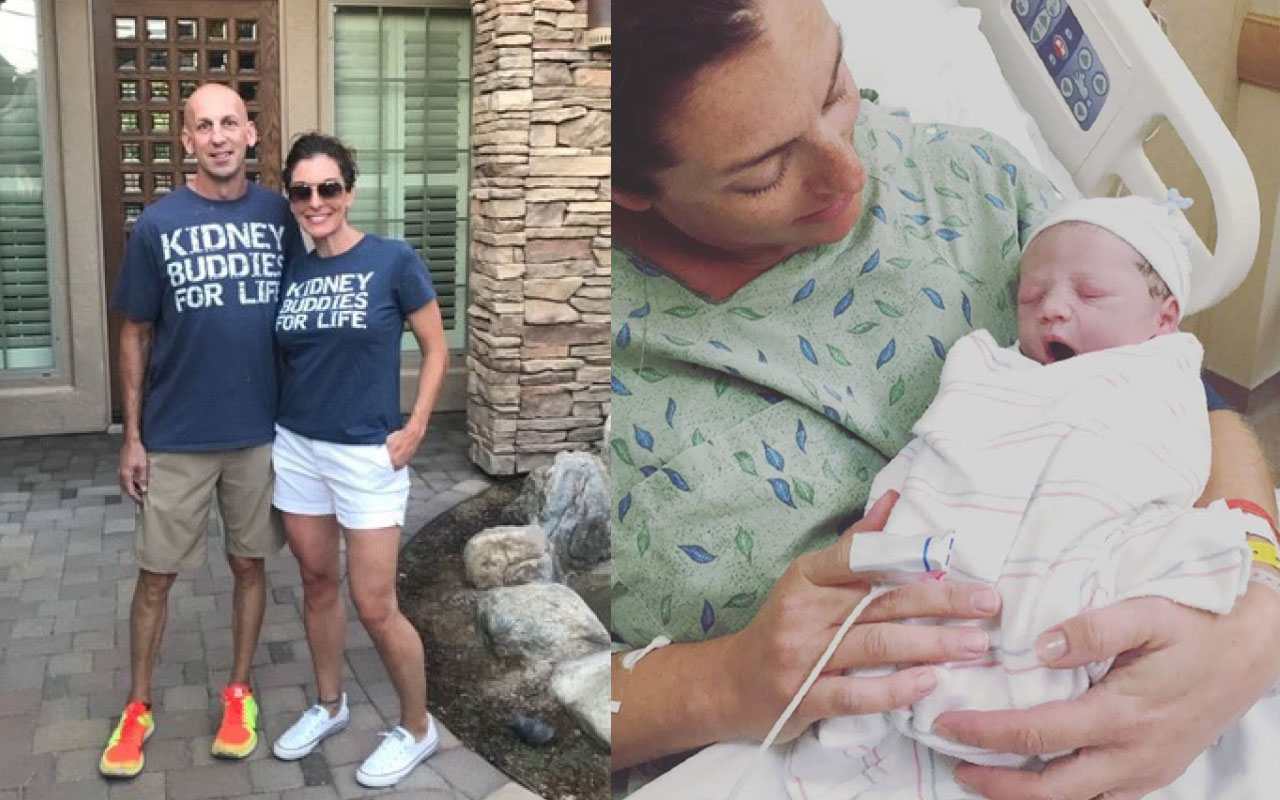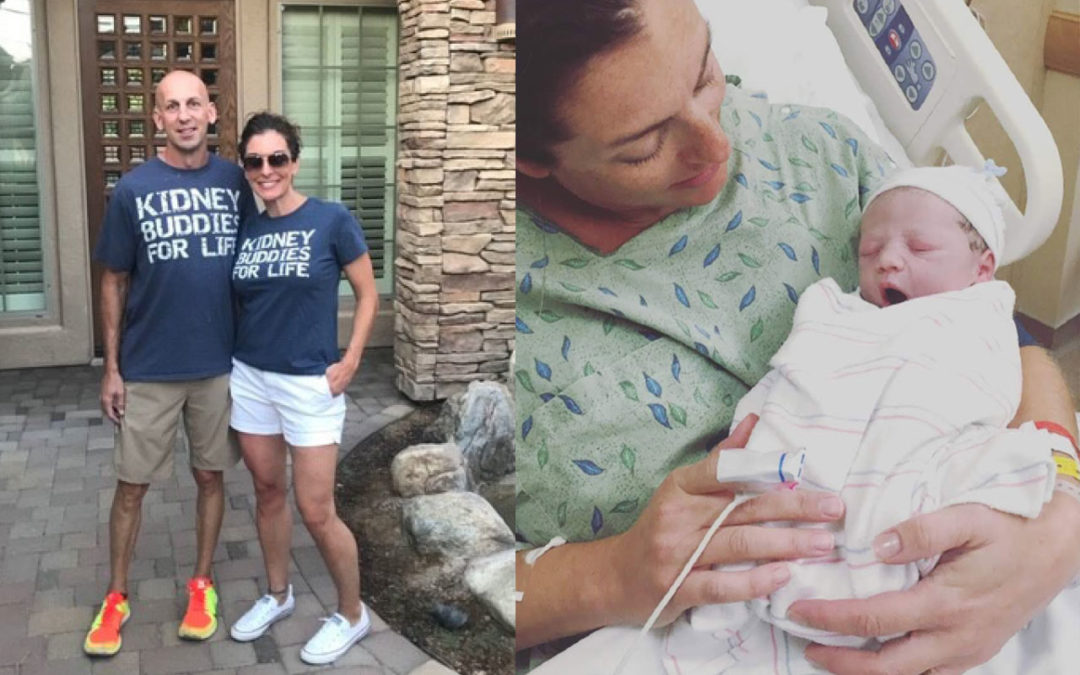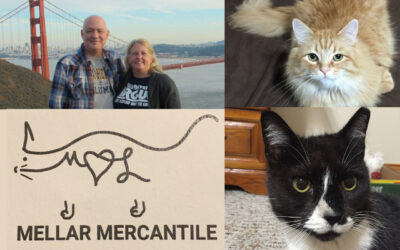 “If you need anything, just ask Amy.”
“If you need anything, just ask Amy.”
In Amy Peronace’s household, the punchline of that joke turns on its understatement. By day, the mother of three directs women’s imaging services at Banner Imaging in Phoenix, Arizona, helping make some of the most complicated health conditions people may experience feel routine. In off-hours, Peronace loves traveling, exercise and staying active with outdoor activities.
She also embraces an attitude that she describes as “living generously” – of giving back whatever time, resources or energy she has to the people and causes closest to her.
“[Being] sensitive, emotional, caring, feeling – I always have been guided toward that,” Peronace said. “What can I do to help?”
In the spring of 2015, Peronace decided to help out a stranger in one of the most demanding ways imaginable. She opted to become a surrogate mother.
Two of her friends had done the same thing, “and I thought they were crazy,” Peronace said. But when one of her friends delivered a surrogate baby, she had the chance to meet the adoptive family in the waiting room, and her perspective shifted dramatically.
“I got to see how amazing it was to create a whole family for someone and change their life,” she said. “It wasn’t anything I ever thought I would do, ever.”
Working with an agency, Peronace was matched with a man in Barcelona, Spain, where surrogacy is illegal, and single men are not allowed to adopt children. He traveled to the United States for several doctor’s appointments, and had lots of contact with Peronace throughout her pregnancy.
“We got really close,” Peronace said. “When he came out with his mom, our families all had dinners together. He really got to know my kids and my parents and my brother and sister, and we still connect to this day.”
In October 2016, the man and his mother were in the delivery room when Peronace gave birth to a healthy baby boy, and handed him over to his new family. Emotions were high, and yet, afterwards, things quieted down almost immediately. Peronace was given a private room next door, and got to sleep through those next, typically restless nights in relative comfort. The new dad remained in Arizona for several weeks, completing adoption paperwork and letting his son grow strong enough for the transatlantic flight. Yet, as close as everyone became, Peronace said she nonetheless was able to separate out the processes of pregnancy and childbirth from the strong connections she’d formed with the family she’d help create.
“It’s such a scientific and medical process, from implementation to genetic testing; it’s never done off of emotions or feelings,” Peronace said. “From Day One, it’s so medical and step-by-step. But really connecting with the dad and knowing that this was his [baby], you can really easily separate yourself from [the process].”

Amy Peronace’s acts of kindness include donating a kidney and serving as a surrogate mother.
By the winter of 2018, the baby that Peronace had helped bring into the world was growing into a toddler an ocean away. But back at home, another emergency was brewing; almost overnight, a close family friend was diagnosed with kidney failure. This married father of two had careened from being a healthy, active, athletic person into a dialysis patient three days a week. Peronace accompanied his wife to a few doctor visits to help her develop the technical expertise around how to manage her husband’s care at home.
“I went just for support,” she said; “to learn how to hook him up to the dialysis equipment, how to change his lines and do his dressings, and I did that if she was out of town.”
“Every single night for eight hours, his bedroom had become a sterile room,” Peronace said. “Trucks came in with hospital-grade equipment. You’d have to mask up, glove up, coming in.”
Eventually, it became clear that her friend needed a kidney transplant. Peronace decided to see if she could be a match. In secret, she underwent an extensive evaluation process. Weeks of comprehensive laboratory panels, medical imaging, psychological counseling, and other diagnostic tests followed, including meetings with a nutritionist, a counselor and a financial analyst before the case finally came before a medical review board.
The board said she was as close to a perfect match for the recipient as they’d ever seen.
“I did all of that without even telling him because I never wanted to get his hopes up in case something went wrong or, God forbid, I changed my mind,” Peronace said. “It wasn’t until it was approved that I let him know that we were good to have surgery in a month.”
The reaction was understandably overwhelming.
“I gave him a T-shirt that said ‘Kidney buddies for life’ on it,” Peronace said. “My son was videotaping it. Once it connected, everybody was crying.”
Despite the recovery being “one of the hardest things I’ve ever done,” Peronace said she was back to feeling like herself again within two weeks. The transplant was a success, and today, almost a year-and-a-half after the surgery, her kidney is functioning at 70 percent in her friend’s body.
“Now I just go for yearly labs and it’s great,” Peronace said. “He’s got his muscle mass back, his color back; he’s like a whole new person. I don’t even notice [that I’m missing a kidney]; I sometimes don’t even think about it.”
Unlike her decision to become a surrogate mother, which Peronace said was fairly clinical, the choice to become a living organ donor was much more emotionally driven.
“I get the surrogacy thing is hard for people to comprehend, and that took a lot more thought,” she said. “The kidney thing, even before he said anything, I was like, ‘If this guy ever needs a kidney, he can totally have mine.’ ”
Those with whom she shares her story may feel like the differences they make in their own lives don’t measure up to what Peronace has done. She is quick to dismiss such attitudes. Instead, she advocates heavily for individual people living generously however they can manage to do it.
“I give myself a hard time because I’ve done these two amazing things,” she said, “but every time somebody’s like, ‘I need volunteer work,’ and I don’t have time, I feel so guilty not volunteering.”
“If you have the means to, give back in whatever capacity you can,” Peronace said. “You can be donating time, donating money, helping neighbors. It does so much, not only for the person you’re doing it for, but yourself.”








